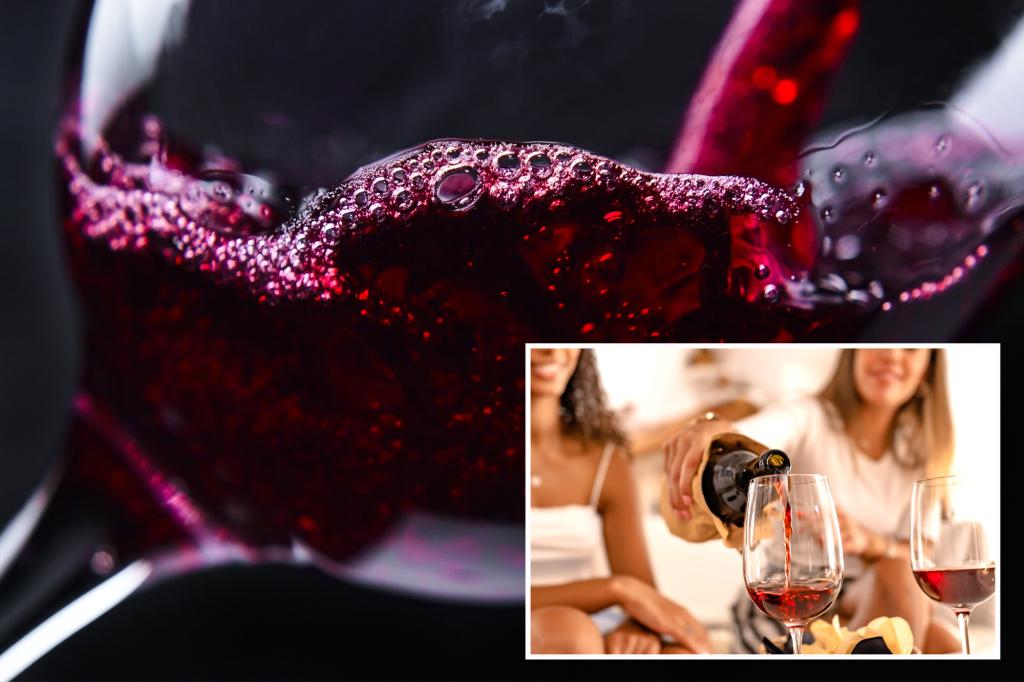QUESTION: Is it true drinking wine before bedtime is like giving red cordial to a child? I swear, whenever I’ve been drinking wine lately I’ve had the worst night’s sleep. The girls at the gym swear blindly it’s the sugar in the wine that makes me unable to go back to sleep when I wake up at 3 a.m. I thought the only thing I should be avoiding is coffee! Are there any other foods or drinks that are a definite no-no before sleep? – Marise, 38, Subiaco WA.
ANSWER: Dear Marise, thank you for a fabulous question. You’ve painted the picture perfectly: a glass or two of wine with friends followed by a night of broken sleep and a bleary-eyed gym session the next morning. It is one of the most common mysteries I hear: why does wine knock you out at first, then wake you up at 3 a.m.?
Here’s the simple explanation. Alcohol is a sedative. It boosts a brain chemical called GABA that slows your system down, so you fall asleep quickly. But as your liver processes the alcohol, that sedative effect wears off. Your nervous system then swings back the other way, becoming more alert and restless. That is why so many people jolt awake in the middle of the night with a racing mind and no chance of drifting back off.
Alcohol also disrupts rapid eye movement (REM) sleep, the stage most linked to memory, learning and mood regulation. Less REM means lighter, more fragmented sleep overall. A large review in Sleep Medicine Reviews found that even moderate drinking before bed consistently worsens sleep quality across multiple studies. So while you may conk out fast, the second half of the night is where things unravel.
Your gym friends are partly right when they blame sugar, because some wines contain residual sugar. But the real villain is alcohol itself. As it is broken down, your body produces acetaldehyde, a toxic by-product that contributes to poor sleep structure and that groggy “hit by a bus” feeling the next morning.
You are also right to keep coffee on the blacklist before bed. Caffeine has a half-life of about five to seven hours, which means a 3 p.m. coffee can still be active in your system come bedtime. But alcohol is often overlooked as being just as disruptive to quality sleep.
Other foods and drinks worth avoiding close to lights out include:
• Dark chocolate. Sorry, I know this sounds cruel. But chocolate contains both sugar and caffeine. Even a modest block can be enough to trigger wakefulness.
• Spicy foods. These can cause indigestion and even raise your core body temperature, both of which are enemies of sleep.
• Fatty or fried meals. Heavy foods make your digestive system work overtime, often causing reflux that wakes you up at night.
• Energy drinks or green tea. People often forget that green tea and many herbal teas still contain caffeine.
People sometimes say alcohol helps them sleep like a baby. True, but remember that babies wake every few hours crying for attention. Not ideal.
If you want restorative sleep, save the Pinot for a weekend lunch instead of a nightcap. Choose a calming caffeine-free tea, keep your evening meal light and dim the lights to give your body the best chance at proper rest.
One final thought: chronic poor sleep is not just inconvenient. Research links it to higher risks of obesity, depression and cardiovascular disease. A glass of wine may feel harmless, but night after night it can quietly chip away at your health.
Bottom line: wine before bed is not red cordial for adults. It is a sleeping pill that turns into a 3 a.m. alarm clock.
Sweet dreams, Dr Zac
Got a question? Email askdrzac@drzac.com.au
Follow @DrZacTurner on Instagram
Read the full article here

